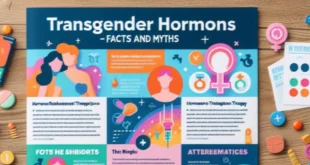Sex conversion therapy, or reparative therapy as it is also known, has been a source of ire and controversy in the LGBT community for years.
Everyone has days where there are things that they wish they could change about themselves. Certainly it comes as no surprise that there are people that would like to profit from offering the opportunity to LGBT folks to stop having homosexual thoughts. In a world where therapy has become a cornerstone of our lives from our pre-school years on it was inevitable that there would be therapists that provide counseling to eliminate homosexual thoughts. But sex conversion therapy is no small matter… it is not just a field comprised of a few greedy therapists armed with self-help books and gimmicky promises. In the 90’s when sex conversion therapy first gained notoriety it was mainly through Christian counselors. The Christian organizations behind these counselors would often rely on help from the secular group National Association for Research & Therapy of Homosexuality (NARTH) to support their actions. The justification for their work was easy at the time because the World Health Organization still considered homosexuality a mental disorder. A large part of their efforts were geared towards converting self-identified gay or bisexual teenagers to heterosexuality through the use of electro-shock therapy and other unpleasant stimuli paired with homoerotic images.
Laws that ban conversion therapy have been added to state legislature now in California, New Jersey, New York, and Massachusetts.
Accounts from LGBT individuals that received sex conversion therapy as minors frequently blame the therapy for worsening their anxiety and self-hatred. Clearly some of the methods that sex conversion therapy uses are out of the dark ages of psychology, but is it fair to sex that all counseling like this should be outlawed even if it is practiced only by licensed therapists? The therapy is defined as being meant to help with unwanted homosexual thoughts, so maybe it is unfair to immediately dismiss the therapy as unethical. But the mere question of whether or not conversion therapy is ethical implies that some LGB individuals aren’t really homosexual. The World Health Organization no longer considers homosexuality a mental disorder, so it hardly makes sense that there are people that would still like to treat it as one. If the LGB individual were having too many homosexual thoughts–well that is another problem entirely and not one that most LGB people have any need to address in therapy.
The other problem here is that the majority of sex conversion therapy is directed at minors.
When a teenager isn’t sure what kind of person he or she is in an intimate sense, that’s normal. Trying to suppress changes in sexuality and self-perspective in teenagers should never go beyond the normal do’s and don’ts of that age category. If you aren’t convinced that sex conversion therapy is too extreme then maybe it helps to imagine what you would think of a parent that sought electro-shock therapy to for their 16 year old daughter for ideating about inviting her school’s field hockey team over for a wild night. Sometimes teenagers have thoughts that are a little beyond them, and sometimes parents have difficulty accepting the people their teenagers are becoming, but shock therapy is rather severe. It just doesn’t sound like something that fits with our ideals as a culture.
Dr. M. Mirza, LGBT Health Wellness – 2014
 Lesbian, Gay, Bisexual, Transgender & Intersex News Lesbian News, Gay News, Bisexual News, Transgender News, Intersex News, LGBTI News
Lesbian, Gay, Bisexual, Transgender & Intersex News Lesbian News, Gay News, Bisexual News, Transgender News, Intersex News, LGBTI News




